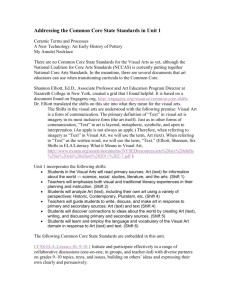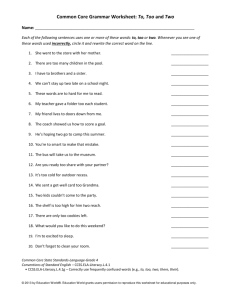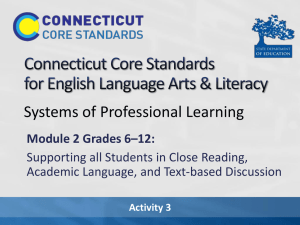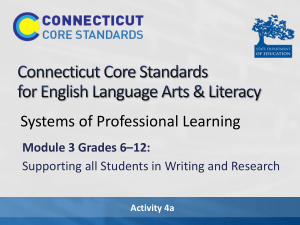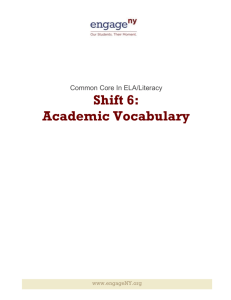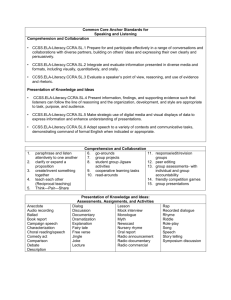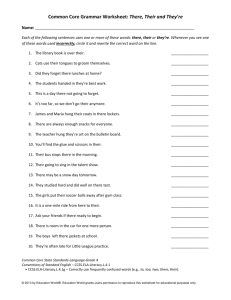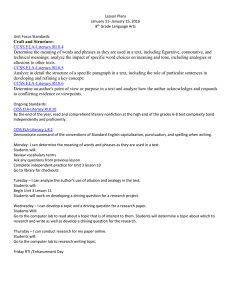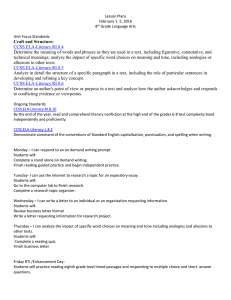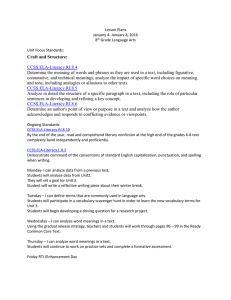Close Reading of Complex Texts in the 3-8 Modules EngageNY.org
advertisement
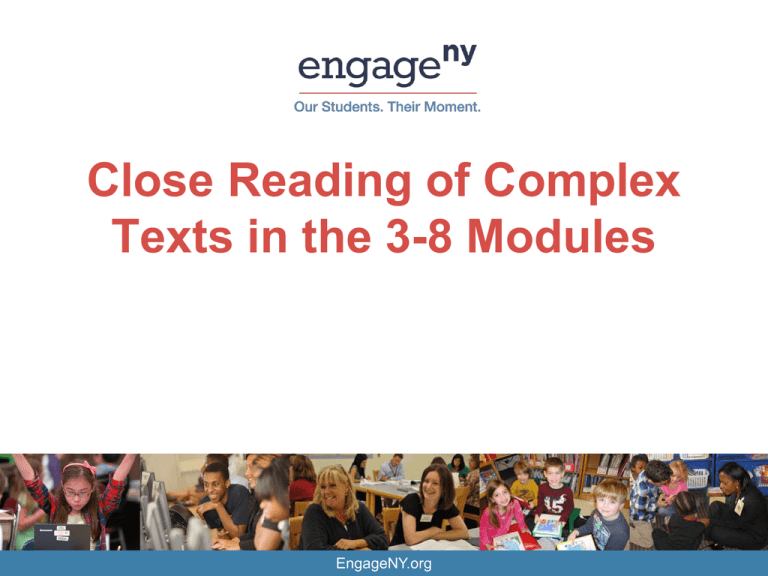
Close Reading of Complex Texts in the 3-8 Modules EngageNY.org Introductions: Triads • Role • School • Biggest “a-ha” so far in this NTI training EngageNY.org 2 Learning Targets • I can describe the instructional strategy of “close reading.” • I can describe the components of text complexity. • I can analyze a classroom lesson for evidence of the shifts in action. EngageNY.org 3 Jot some thoughts… • What is close reading? • What is text complexity? EngageNY.org 4 Text Rendering Protocol 1. Initial Reading – 25 min 1. Re-reading and taking notes – 10 min 1. Organizing your thinking – 5 min 1. Group discussion – 15 min 5 EngageNY.org Key Ideas and Details Reading Standards •CCSS.ELA-Literacy.CCRA.R.1 Read closely to determine what the text says explicitly and to make logical inferences from it; cite specific textual evidence when writing or speaking to support conclusions drawn from the text. •CCSS.ELA-Literacy.CCRA.R.2 Determine central ideas or themes of a text and analyze their development; summarize the key supporting details and ideas. •CCSS.ELA-Literacy.CCRA.R.3 Analyze how and why individuals, events, or ideas develop and interact over the course of a text. Craft and Structure •CCSS.ELA-Literacy.CCRA.R.4 Interpret words and phrases as they are used in a text, including determining technical, connotative, and figurative meanings, and analyze how specific word choices shape meaning or tone. •CCSS.ELA-Literacy.CCRA.R.5 Analyze the structure of texts, including how specific sentences, paragraphs, and larger portions of the text (e.g., a section, chapter, scene, or stanza) relate to each other and the whole. •CCSS.ELA-Literacy.CCRA.R.6 Assess how point of view or purpose shapes the content and style of a text. Integration of Knowledge and Ideas •CCSS.ELA-Literacy.CCRA.R.7 Integrate and evaluate content presented in diverse media and formats, including visually and quantitatively, as well as in words.1 •CCSS.ELA-Literacy.CCRA.R.8 Delineate and evaluate the argument and specific claims in a text, including the validity of the reasoning as well as the relevance and sufficiency of the evidence. •CCSS.ELA-Literacy.CCRA.R.9 Analyze how two or more texts address similar themes or topics in order to build knowledge or to compare the approaches the authors take. EngageNY.org 6 Connect Extend Challenge • CONNECT: How are the ideas and information presented CONNECTED to what you already knew? • EXTEND: What new ideas did you get that EXTENDED or pushed your thinking in new directions? • CHALLENGE: What is still CHALLENGING or confusing for you to get your mind around? What questions, wonderings or puzzles do you now have? 7 EngageNY.org Model Lesson Analysis • What evidence did you see of the Common Core Shifts in action in the classroom? (please try to use the language of the shifts) 8 EngageNY.org Look for Evidence • Mark evidence of the shifts in your “Close Reading Lesson” materials in your Module Sampler. EngageNY.org 9 Revisit • Revise, add to, or rewrite your initial thoughts: What is close reading? EngageNY.org 10 Please use your Reflection Form to capture your new learning and thinking on the session. THANK YOU! EngageNY.org 11
